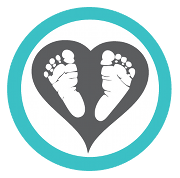* Breastfeed your baby as long as possible. The longer you breastfeed, the less chance your child has of developing allergic diseases, such as eczema and asthma. Breastmilk is rich in an immunoglobulin called secretory IGA, which acts as a protective paint, coating the intestines and keeping food allergens out of the bloodstream. Breastmilk keeps the intestinal lining healthy and better able to break down proteins into individual amino acids. The amino acids themselves are not likely to cause allergies when they get into the bloodstream. Intestines that are damaged due to infection or inflamed by foreign milk or formula may allow whole protein molecules to seep through, setting up an allergic reaction in the bloodstream. To further decrease the risk of developing food allergies, it would be wise for a breastfeeding mother to keep the most allergenic foods out of her diet until her baby is at least one year of age.
* Delay introduction of solid foods. Mature intestines are better able to screen out potential allergens and keep them from entering the bloodstream. If you feed your infant solid foods (especially those containing protein, such as wheat, soy, and dairy) before the intestinal lining is mature, food allergens can seep into the bloodstream, causing baby to build up antibodies to those allergens and later become allergic to those foods. When you do start solids, introduce the least allergic (lowest protein) foods first, such as fruits, vegetables, and rice. Wait until at least eighteen months before introducing potentially-allergic foods, such as egg whites, tomatoes, shellfish, and peanut butter . Make citrus fruits the last fruits you introduce. Also, if you're formula-feeding, discuss with your doctor the use of hypoallergenic formulas (a partial whey hydrolyzed formula), such as Alimentum or Nutramigen. Avoid soy formulas . Also, delay introducing cow's milk products until at least a year of age. By twelve months of age, your child's intestines are mature enough to screen out most of the food allergens.























No comments:
Post a Comment
This blog only reviews comments before posting to avoid hijacking. We will respond to comments Mon-Thurs but we are closed Fri-Sun and legal holidays.